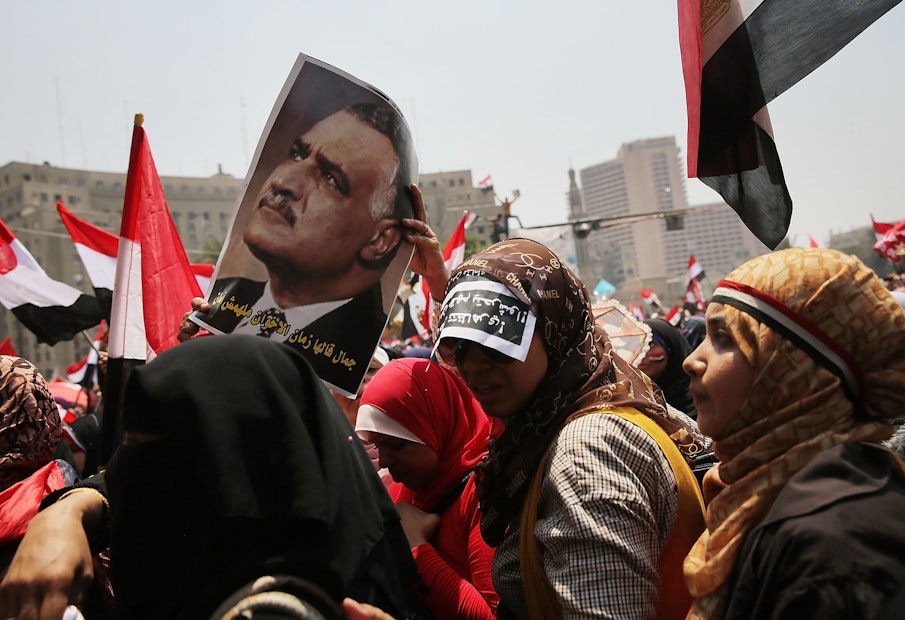Middle Eastern conflicts have become synonymous with sectarianism and Islamism. And yet, many individuals in those very same conflict zones embrace pluralism and secular identities.
Join us on Wednesday, October 10, to learn how restrictive citizenship laws and sectarian politics in the Middle East have moved far out of kilter with their pluralistic and diverse constituents.
In an event co-hosted by The Century Foundation and New York University’s Hagop Kevorkian Center for Near Eastern Studies, prominent researchers and activists will join together to discuss the future of secularism and universal rights in the Middle East.
Register and reserve your seat today. For further questions, please contact Rohan Advani at [email protected].
This panel is part of a research initiative on citizenship, pluralism, minorities, and rights at The Century Foundation, with support provided by the Henry Luce Foundation.
Event Details
October 10, 2018
6:00pm – 8:00pm
Join us for a wine and cheese reception after the event.
New York University
Hagop Kevorkian Center for Near Eastern Studies
50 Washington Square South (Sullivan Street entrance)
New York, NY 10012
Speakers
Mustafa Akyol
Mustafa Akyol is a senior fellow at the Cato Institute’s Center for Global Liberty and Prosperity, where he focuses on the intersection of public policy, Islam, and modernity. As a longtime Turkish journalist and author, he is a regular contributing opinion writer for The New York Times. His 2011 book arguing for Islamic liberalism, Islam Without Extremes: A Muslim Case for Liberty, was praised by The Financial Times as “a forthright and elegant Muslim defense of freedom.” He is also the author of The Islamic Jesus: How the King of the Jews Became a Prophet of the Muslims, as well as six books in Turkish. Akyol is also a public speaker who has given hundreds of lectures and talks on numerous platforms, including TED, and he has been a commentator on numerous public affairs programs, including the BBC’s “Hardtalk” and CNN’s “Fareed Zakaria GPS.”
Thanassis Cambanis
Thanassis a senior fellow at The Century Foundation who specializes in the Middle East and U.S. foreign policy. His most recent book, Once Upon A Revolution: An Egyptian Story, chronicles Egyptian efforts to create a new political order. His first book, A Privilege to Die: Inside Hezbollah’s Legions and Their Endless War Against Israel was published in 2010. He writes “The Internationalist” column for The Boston Globe Ideas, and regularly contributes to The Atlantic, Foreign Policy and The New York Times. He teaches at Columbia University’s School of International and Public Affairs and was previously a Ferris Professor of Journalism at Princeton University.
Rabab El Mahdi
Rabab El Mahdi served as a strategist for a secular-Islamist alliance in the 2012 Egyptian presidential elections. She is a political scientist professor at The American University in Cairo specializing in comparative political economy and development, with a focus on Latin America and the Middle East. El Mahdi’s research interests cover the areas of state-civil society relations, social movements and resistance, as well as the political economy of social policy. Before joining AUC, she worked for several developmental organizations including nongovernmental organizations and United Nations agencies.
Karl Sharro
Karl Sharro is an architect, satirist and commentator on the Middle East. He has spoken on a range of issues such as art, architecture, urbanism and politics, at MoMA, the Barbican Centre, Internazionale Ferrara and many others. He appears regularly on the BBC and other media outlets, and has written for a number of international publications and organizations including Foreign Policy, The Atlantic, Jadaliyya, Vice, and Index on Censorship. He is a Partner at PLP Architecture in London and co-author of Manifesto: Towards a New Humanism in Architecture, which was included in 100 Artists’ Manifestos: From the Futurists to the Stuckists, a survey of 100 influential art manifestos from the last 100 years. He has practiced architecture in London and Beirut, and taught for five years at the American University of Beirut.
Elizabeth Thompson
Elizabeth F. Thompson is a historian of political movements, citizenship, constitutions, gender, and foreign intervention in the Middle East. She is a professor at American University’s School of International Service, and the author of two books: Justice Interrupted: The Struggle for Constitutional Government in the Middle East and Colonial Citizens: Republican Rights, Paternal Privilege, and Gender in French Syria and Lebanon. Thompson is now writing a third book on the establishment of a democratic Arab government at Damascus in 1920, and the consequences of its destruction, authorized by the League of Nations. She is also co-producing a documentary on World War I in the Middle East.
